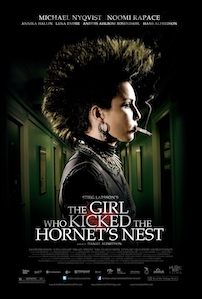A thoughtful and captivating character-driven film within a film within a film set as two married filmmakers travel to Fårö, the island home and inspiration for many of Ingmar Bergman’s features.
Arriving on the island as a guest of the Bergman Society, acclaimed film director Tony (Tim Roth) finds his time increasingly in demand to attend screenings and talks around the island. With more time to herself, wife Chris (Vicky Krieps) looks for inspiration for her latest script. As Tony attends the more official aspects of everything Bergman, so Chris immerses herself in the ever present spirit of the renowned director – with the ideas within her evolving script taking centre stage of Bergman Island. Reality and fiction blur unexpectedly as Mia Wasikowska and her thwarted love for Anders Danielsen Lie becomes the central narrative.
A slow burn of a feature that slowly creeps up on the viewer, Bergman Island is very much director Mia Hansen-Løve’s homage to Bergman himself and the seriousness in which he approached the exploration of relationships within his films (and personal life). Layer upon layer is applied that draws the viewer into a narrative of wistful nostalgia.
Rating: 74%
Director: Mia Hansen-Løve (Father of My Children, Things to Come)
Writer: Mia Hansen-Løve (Father of My Children, Things to Come)
Main cast: Vicky Krieps (Phantom Thread, Old), Tim Roth (Pulp Fiction, Luce), Mia Wasikowska (Judy and Punch, Stoker), Anders Danielsen Lie (The Worst Person in the World, Oslo August 31st)










